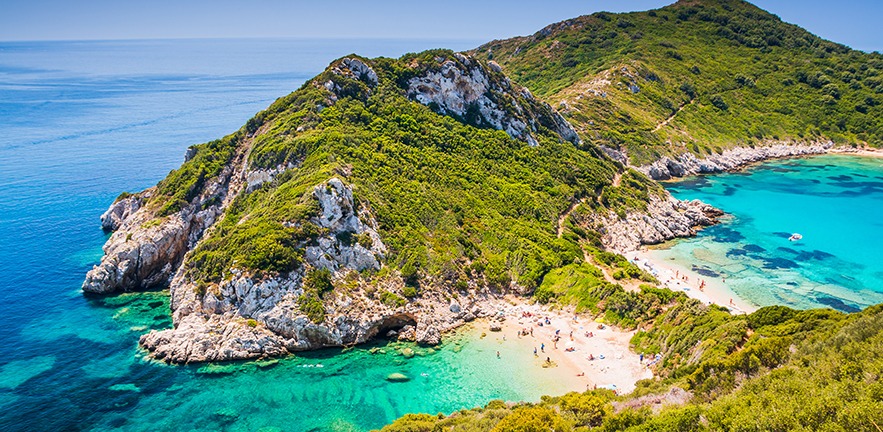The 33 smallest islands of Greece are an idyllic place to examine the important link between competition and tax rise ‘pass-through’, says a new study co-authored by Christos Genakos of Cambridge Judge.

The tiny sun-drenched islands off the coast of Greece are idyllic vacation spots, but a new study also finds them ideal for another reason: a perfect place to analyse the tricky economic relationship between competition and the “pass-through” of cost shocks.
How firms pass new costs such as surprise tax rises or unfavourable exchange-rate shifts on to consumers has long been a central focus of economics – with repercussions ranging from firm productivity to international trade to healthcare policy debate. Yet there has been very little evidence of the role played by competition due to the difficulty of distinguishing local markets in an interconnected world.
And that’s where the 33 smallest islands of Greece (median population 2,500) come in – ranging from Agkistri to Kimolos to Tinos – to examine the effects of three large Greek government hikes to the excise tax on petrol, diesel and other petroleum products in 2010 in a bid to boost revenues following the financial crisis. (Heating oil was excluded from the tax rises for political reasons.)
“These small islands present clearly defined independent markets to study these tax rises,” says Christos Genakos of Cambridge Judge Business School, co-author of the study forthcoming in the American Economic Journal: Applied Economics. “The islands vary in size and population, with some so small they have just a single petrol station while others have two, three or a few more – so there’s a clear variability in the level of competition.”
The study used daily petrol station data to study how the pass-through of the excise-duty tax varied across markets with different numbers of competitors, while using heating oil as a control factor.
The findings: pass-through of tax hikes increases significantly with the number of competitors – with the pass-through on average 0.43 on monopolistic islands (meaning that consumers will pay 43 euro cents more on a one euro tax rise) and growing to about 1.0 (full cost-rise pass-through) on islands with four or more competitors. After three or four firms, an additional petrol station did not much affect pass-through competition. What’s more, price rises are 60% higher and occur more quickly in more competitive markets.
The study also contains important insights with regard to defining retail markets.
“Competition authorities throughout the world routinely define markets based on geographical or driving distance between sellers, but this approach can’t usually guarantee that consumers won’t shop outside the geographical area,” says Christos. “The strictly limited number of petrol stations on a tiny Greek island takes this complicating factor off the table.”
As the study says: “Arbitrage across islands is basically impossible, as the cost of transporting a car by ferry outweighs the potential savings in fuel cost”, while the islands host only small fishing boats “which are too slow to make it profitable to travel to a different island for refuelling.”
Based on its findings on the sealed-off Greek islands markets, the study concludes that other geographical market definitions based on distance across sellers have often resulted in overestimation of pass-through in highly concentrated markets. “Since these definitions are often used in policy analysis, care should be taken when studying oligopolistic markets,” the study says. The article – entitled “Competition and pass-through: evidence from isolated markets” – is co-authored by Christos Genakos, Reader in Economics & Policy at Cambridge Judge Business School, a Fellow at Fitzwilliam College, Cambridge, and a Research Fellow at the Centre for Economic Policy Research (CEPR); and by Mario Pagliero, Professor of Economics at the University of Turin and a Research Fellow at the Collegio Carlo Alberto and CEPR.


